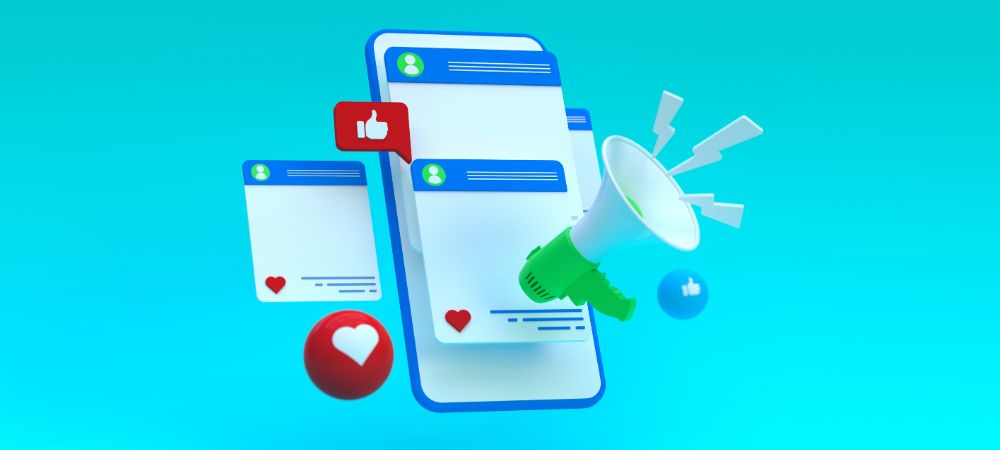

In today's fast-paced digital world, the significance and perks of collaborating with influencers can't be overstated. It's undeniable that influencer marketing has transformed how brands connect with their audience. But hey, let's not pretend it isn't without its quirks.
First off, working with influencers ain't just about boosting sales – it's much more than that. One major benefit is tapping into an already engaged audience. For more relevant information visit this. Influencers have spent time building trust and rapport with their followers, which means when they recommend a product or service, people listen. This kind of endorsement is way more authentic compared to traditional advertising methods.
Also, let's talk about reach. By partnering with influencers, brands can access new demographics they might not otherwise have been able to touch. It's like casting a wider net in the sea of potential customers. Influencers bring your message directly to those who're most likely to resonate with it.
But wait, there's more! The creativity factor shouldn't be ignored either. Influencers are content creators at heart – they're experts in crafting engaging posts that captivate their audience's attention. When you collaborate with them, you're not just getting exposure; you're getting high-quality content that showcases your brand in the best possible light.
Now, let's be real: it ain't all sunshine and rainbows. Not every collaboration will hit a home run. There are plenty of cases where partnerships don't quite work out as expected (ouch!). That said though, when done right – oh boy – the results can be phenomenal!
Another boon is cost-effectiveness - believe it or not! While some top-tier influencers charge hefty fees for partnerships (no kidding!), there are micro-influencers who offer great value without breaking the bank. These smaller-scale influencers often have highly engaged audiences and can deliver impressive results on a modest budget.
Don't forget about SEO benefits too! Collaborations often lead to backlinks from influential blogs or social media mentions which boost search engine rankings over time.
Lastly but certainly not leastly (yeah I know that's not a word), there's something inherently humanizing about these collaborations. They add personality and relatability to brand campaigns which makes consumers feel more connected on an emotional level - something no amount of flashy graphics could ever achieve alone.
So yeah…while influencer collaborations come with challenges and risks (what doesn't?), their importance and benefits make them worth considering for any business looking forward towards genuine engagement & growth opportunities in this digital age we live in today!
Identifying the right influencers for your brand ain't an easy task. It requires a mix of research, intuition, and sometimes just plain old luck. I mean, sure, we all want that perfect influencer who'll make our product shine like it's the next big thing. But let's face it-finding them is like searching for a needle in a haystack.
First off, you don't want to be swayed by numbers alone. Oh gosh, how many times have people been duped because they thought more followers meant more influence? It's not always true! A million followers won't do you any good if those followers aren't engaged or interested in what you're selling. Look at engagement rates instead. If someone has 10k followers but gets hundreds of comments and likes on every post, that's probably better than someone with 100k followers who only gets a couple dozen reactions.
Then there's the matter of fit. You can't just pick any popular influencer and hope it works out – nope, that's not how it goes. They need to align with your brand values and message. Imagine trying to sell eco-friendly products through an influencer known for promoting fast fashion? Yeah... that mismatch can turn into a PR disaster real quick.
Next up is authenticity - oh boy! We've seen so many influencers who promote anything and everything as long as there's money involved – yikes! It doesn't take long for their audience to see through this facade either. You want someone who's genuinely enthusiastic about your product or service because they're gonna talk about it in an authentic way that resonates with their audience.
Also important is what's called 'micro-influencers'. These are folks with smaller followings but higher engagement rates within niche communities. Don't underestimate them-they often have very loyal audiences who trust their recommendations wholeheartedly.
Lastly, build relationships rather than transactions. Don't treat influencers as mere advertising tools; they're people too! Take time to get to know them and understand what makes them tick-it'll pay off in spades when they start talking about your brand passionately and authentically.
So yeah, picking the right influencers isn't rocket science but it does require effort (and maybe some trial-and-error). Just remember: don't be blinded by follower counts alone; ensure alignment between the influencer's content style/values with yours; seek authenticity over popularity; consider micro-influencers seriously; foster genuine relationships rather than transactional ones-and you'll be off on the right foot!
Instagram, purchased by Facebook in 2012 for about $1 billion, currently generates over $20 billion per year in advertising and marketing revenue, highlighting its huge effect on electronic marketing.
LinkedIn, established in 2003 as a expert networking site, has more than 740 million signed up members from all over the world, making it a crucial device for profession development and specialist networking.
WhatsApp was gotten by Facebook in 2014 for about $19 billion, one of the largest tech deals at the time, stressing its immense worth as a worldwide messaging service.
The #MeToo activity, which began in 2017, showcases the power of social networks in driving international activities and bringing attention to social concerns.
Social media management, ain't just about posting pretty pictures or witty tweets anymore.. It's a whole new ball game that's crucial for businesses trying to make a mark in this digital age.

Posted by on 2024-07-14
Oh boy, where do we even start with the role of a social media manager in modern marketing strategies?. It’s like trying to juggle flaming torches while riding a unicycle on a tightrope.

Posted by on 2024-07-14
Effective social media management for brand growth isn't a walk in the park.. It's all about monitoring trends and adapting strategies, which can be quite a task.

Posted by on 2024-07-14
Transforming your social media presence in just 30 days might sound like quite the feat, but with the right strategies and insights, it's not impossible.. One of the most crucial steps in this journey is to adjust strategies based on data insights.

Posted by on 2024-07-14
These days, everyone's on social media, trying to get their content seen and shared.. But it's not as simple as just posting a picture or a status update.

Posted by on 2024-07-14
Initiating and building relationships with influencers ain't as simple as sending a DM and hoping for the best. Nope, it's a bit more intricate than that. But hey, don't let that scare ya! Let's break down some strategies that'll have you collaborating with influencers in no time.
First off, don't just jump straight into selling yourself or your brand. Influencers are bombarded with messages daily; they're not gonna be impressed by another pitch. Instead, start by genuinely engaging with their content. Comment on their posts, share their stories, and show 'em you're actually interested in what they do. You'd be surprised how far a little genuine interaction can go.
Secondly, research is key – and I mean it! You can't expect to build a meaningful relationship if you don't know who you're talking to. Dive deep into understanding the influencer's niche, audience demographics, and even past collaborations. It's not about stalking but rather ensuring that your values align and that your proposition is relevant to them.
Now let's talk about getting personal (but not too personal). When you're finally ready to reach out, craft a message that's personalized rather than generic. Mention something specific about their work that resonated with you or how you envision your collaboration being mutually beneficial. Avoid making it sound like a mass email; trust me, people can tell!
Also – oh boy – patience is crucial here. Building genuine relationships doesn't happen overnight. If an influencer doesn't respond immediately or declines initially, don't take it personally or give up right away! Maybe they're busy or perhaps now isn't the right time for them to engage in new partnerships.
Another strategy involves offering value before asking for anything in return. This could be through providing exclusive access to products or services or even featuring them on your platform first without any strings attached. Remember: relationships are two-way streets!
Networking events are golden opportunities too! Attend industry conferences, webinars or local meetups where influencers might hang out. Face-to-face interactions can sometimes leave lasting impressions way better than digital ones ever could.
Lastly – drumroll please – always maintain authenticity throughout all interactions! Influencers can easily spot insincerity from miles away and once trust is broken? Oh boy…it's hard to mend.
So there you have it: engage genuinely with their content first; do thorough research; send personalized messages; exercise patience; offer value upfront; attend networking events when possible; stay authentic at all times - these strategies should set ya on the path toward successful influencer collaborations without sounding like another cookie-cutter approach.


Setting clear objectives and expectations for collaboration, especially in the realm of influencer partnerships, ain't as simple as it sounds. Many think you just get an influencer on board and boom – magic happens. But no, it's not like that at all! Without a well-defined plan, things can go south pretty quick.
First off, let's talk about objectives. What do you want to achieve from this collaboration? Is it brand awareness, increased sales, or maybe driving traffic to your website? You can't be vague here – specifics matter. If you're not setting clear goals from the start, how's anyone supposed to know what success looks like? It's kinda like going on a road trip without a destination in mind; sure, you'll end up somewhere but is it where you wanted to be?
Then there's expectations. This part often gets overlooked but oh boy, is it crucial! Both parties need to be on the same page about what's expected out of this partnership. Are there content guidelines? Posting schedules? Maybe even certain hashtags that must be used? It ain't fair if one side thinks they'll just post once and forget about it while the other expects daily engagement. And hey, don't forget compensation – make sure everyone knows what's involved so there's no awkward conversations later.
Now let's get real: communication is key here. How often will you touch base? Will there be regular updates or checkpoints? Miscommunication can lead to misunderstandings which are never good for any collaboration. Imagine expecting a review video and getting an unboxing photo instead – that's gonna sting!
Another thing people tend to ignore is the authenticity factor. Influencers have their own style and voice; trying to change them too much might backfire big time. You don't wanna come off as controlling because let's face it- followers can sense when something doesn't feel genuine.
And yeah... flexibility matters too! Sometimes things won't go exactly as planned and that's okay (ugh). Be ready to adapt if needed but also keep those core objectives and expectations in sight.
Look at it this way: setting crystal-clear objectives and expectations isn't just some boring administrative task – it's laying down the groundwork for a successful partnership where both sides win big time! So next time you're gearing up for an influencer collab remember: clarity upfront saves headaches down the road.
And guess what? When done right these collaborations can bring amazing results - more engagement with your brand than you'd ever imagined possible!
Measuring the Success and ROI of Influencer Partnerships
Influencer collaboration has become the cornerstone of modern marketing strategies. But how does one measure the success and ROI (Return on Investment) of these influencer partnerships? It's not as straightforward as we'd like it to be, but let's dive into it.
First off, it's essential to define what "success" means for your brand. Is it about increasing brand awareness, driving sales, or enhancing engagement? Without a clear objective, you can't really say whether an influencer campaign was successful or not. And let's not forget-the metrics you choose should align with these goals.
One common mistake is focusing solely on vanity metrics like likes and followers. Sure, they look good on paper, but do they actually translate into meaningful outcomes? Probably not. Instead, brands should examine deeper metrics like conversion rates, website traffic from affiliate links, and customer acquisition costs. If an influencer partnership doesn't drive significant traffic or boost conversions, then what's the point?
Engagement rate is another critical metric to consider. It's all well and good if an influencer has millions of followers-but if their audience isn't engaging with their content, you're essentially throwing money down the drain. Comments, shares, and direct messages are far more telling indicators of success than mere likes could ever be.
Of course there are also intangible benefits that aren't easily quantified-like brand sentiment or long-term loyalty boosts-that can make a huge difference in the grand scheme of things. Don't underestimate these softer aspects; they're often where real value lies.
When it comes to calculating ROI specifically-oh boy-that's another ball game! The formula itself isn't complicated: (Net Profit / Cost of Investment) x 100%. However applying this formula to influencer marketing involves some nuances that mightn't be immediately obvious. For instance attributing revenue directly back to a particular influencer campaign can be tricky unless you've got robust tracking mechanisms in place.
Moreover collaborations often involve multiple influencers working across various platforms at different times-which adds layers of complexity when trying figure out which effort led what result.
Don't get discouraged though! Use tools like Google Analytics UTM codes or dedicated social media analytics platforms-they're invaluable for tracking performance data accurately so you can make informed decisions moving forward.
In conclusion measuring success and ROI in influencer partnerships is no walk in park-it requires careful planning thoughtful analysis consistent monitoring along way-and yes occasional tweaks strategy too!
But hey who said effective marketing was easy anyways right?